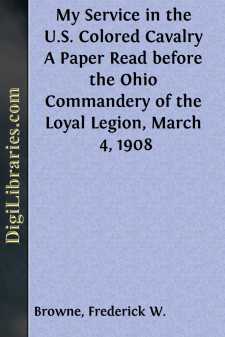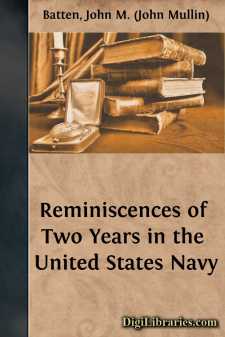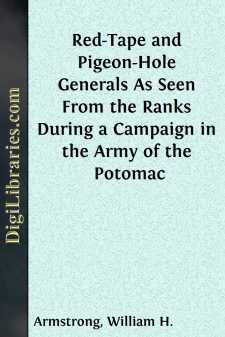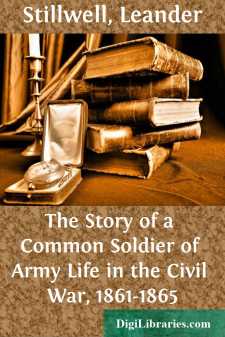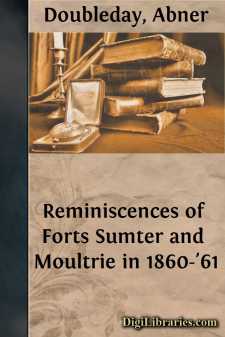Biography & Autobiography
- Adventurers & Explorers 15
- Artists, Architects, Photographers 16
- Business 2
- Composers & Musicians 14
- Criminals & Outlaws 5
- Editors, Journalists, Publishers 6
- Educators 1
- Entertainment & Performing Arts 3
- General 73
- Health, Exercise & Fitness 1
- Historians 3
- Historical 83
- Law Enforcement 1
- Lawyers & Judges 3
- Literary 147
- Medical 7
- Military 48
- Naturalists, Gardeners, Environmentalists 8
- Personal Memoirs & Diaries 226
- Philosophers 3
- Political 9
- Presidents & Heads of State 38
- Religious 38
- Rich & Famous 27
- Scientists 13
- Women 31
Biography & Autobiography Books
Sort by:
COLORED TROOPS. The circumstances attending the organizing of a colored regiment in this State are well remembered. In the summer of 1863, white men were no longer eager to enlist for a war the end of which none could foresee; but nevertheless the war must be prosecuted with vigor; another draft was impending and the State's quota must be filled. With difficulty Governor Smith obtained permission...
more...
by:
Milo S. Hascall
Personal Recollections and Experiences Concerning the Battle of Stone River. As will be perceived by the above caption to this paper, it is proposed to relate what happened to me, and what I observed during the battle alluded to, and might not inappropriately be styled "What I know about the battle of Stone River." In doing so I shall not undertake to give a general account of the battle, but...
more...
“The land where I was born” was, in my childhood, a great battleground. War—as we then thought the vastest of all wars, not only that had been, but that could ever be—swept over it. I never knew in those days a man who had not been in the war. So, “The War” was the main subject in every discussion and it was discussed with wonderful acumen. Later it took on a different relation to the new...
more...
MY SERVICE IN THE U. S. COLORED CAVALRY Having served over two years in a good, hard-fighting infantry regiment, and being encamped at Newport News, Va., holding the dignified rank of Sergeant, I one day met our little fighting Major John G. Chambers who asked me if I would like a commission in the 1st U. S. Colored Cavalry, then forming at Fort Monroe, to which I made answer that I would, and two or...
more...
IN PLACE OF PREFACE. Fortunate, indeed, is the reader who takes up a volume without preface; of which the persons are left to enact their own drama and the author does not come before the curtain, like the chorus of Greek tragedy, to speak for them. But, in printing the pages that follow, it may seem needful to ask that they be taken for what they are; simple sketches of the inner life of...
more...
TWO YEARS IN THE UNITED STATES NAVY. After having passed an examination before the Medical Board of the United States Navy, which was in session at the United States Naval Asylum, Philadelphia, Pa., Dr. James Green, President of the Medical Board, I received the following appointment: Navy Department, 22d March, 1864. You are hereby appointed Acting Assistant Surgeon in the Navy of the United States on...
more...
PREFACE. No apology will be required from the author for presenting to the public some episodes in the useful career of a self-made man; and while the spirit of patriotism continues to animate the sturdy sons of America, the story of one of them who has exemplified this national trait in a conspicuous measure, will be deemed not unworthy of record. The lessons it teaches, more especially to the young,...
more...
PREFACE. "Greek-fire has shivered the statue of John C. Calhoun in the streets of the City of Charleston,"—so the papers say. Whether true or not, the Greek-fire of the righteous indignation of a loyal people is fast shattering the offspring of his infamous teachings,—the armed treason of the South, and its more cowardly ally the insidious treachery that lurks under doubtful cover in the...
more...
CHAPTER I. THE BEGINNING OF THE WAR. LIFE AT CAMP CARROLLTON, JANUARY AND FEBRUARY, 1862. I was born September 16, 1843, on a farm, in Otter Creek precinct, Jersey County, Illinois. I was living with my parents, in the little old log house where I was born, when the Civil war began. The Confederates fired on Fort Sumter on April 12, 1861, and thus commenced the war. On April 15, 1861, President Lincoln...
more...
by:
Abner Doubleday
CHAPTER I. FORT MOULTRIE IN 1860. The Garrison of Fort Moultrie.—Early Indications of Secession.—Situation of the Fort.—Edmund Ruffin and Robert Barnwell Rhett.—The Secretary of War.—Arms sent to the South.—Colonel Gardner.—Captain Foster ordered to Charleston Harbor.—The Officers at Fort Moultrie.—Communications with Northern Men by Cipher.—Proscription of Antislavery Men in...
more...





